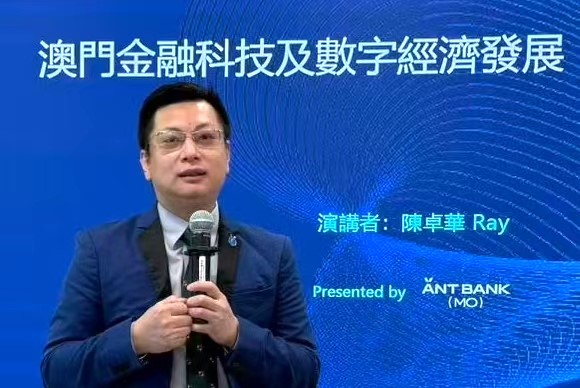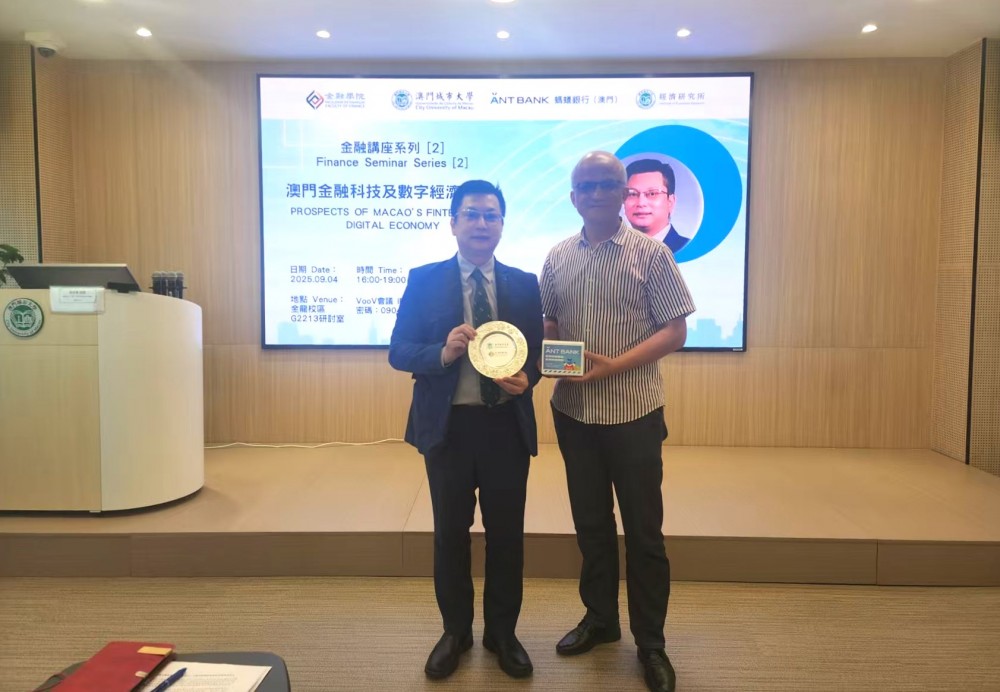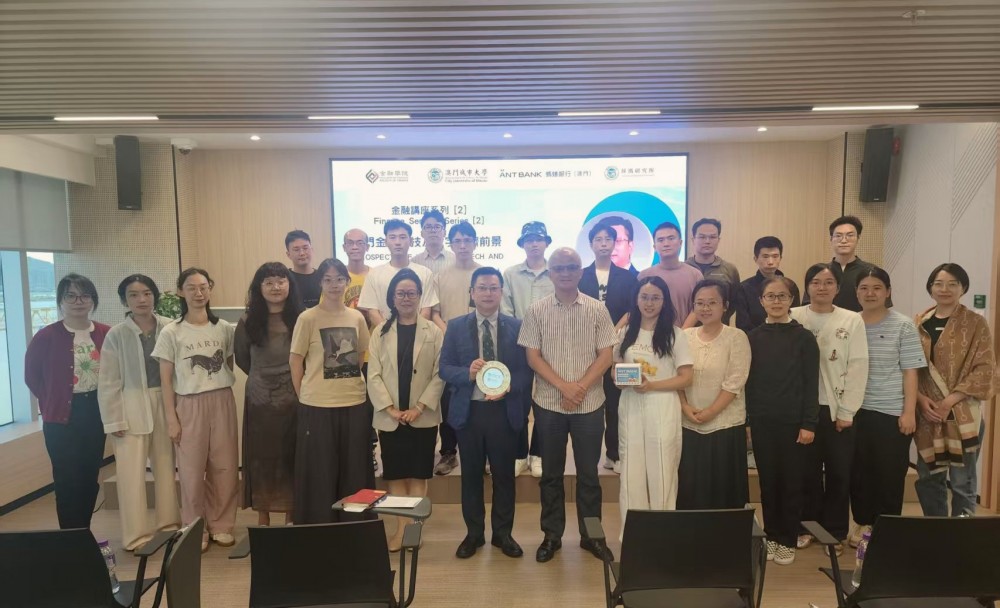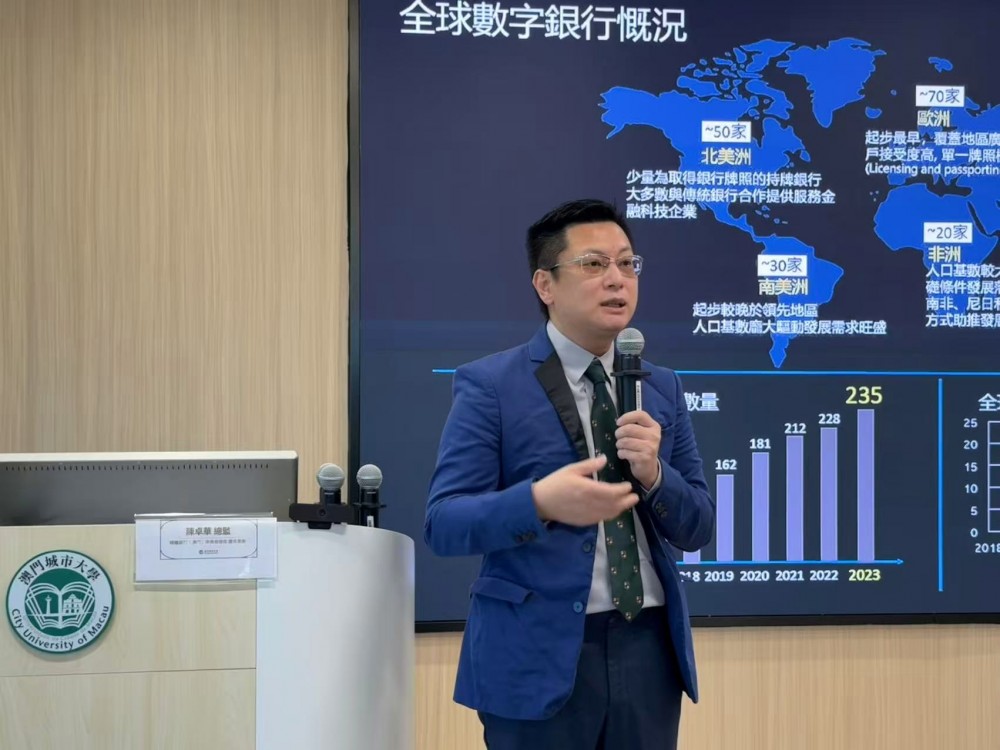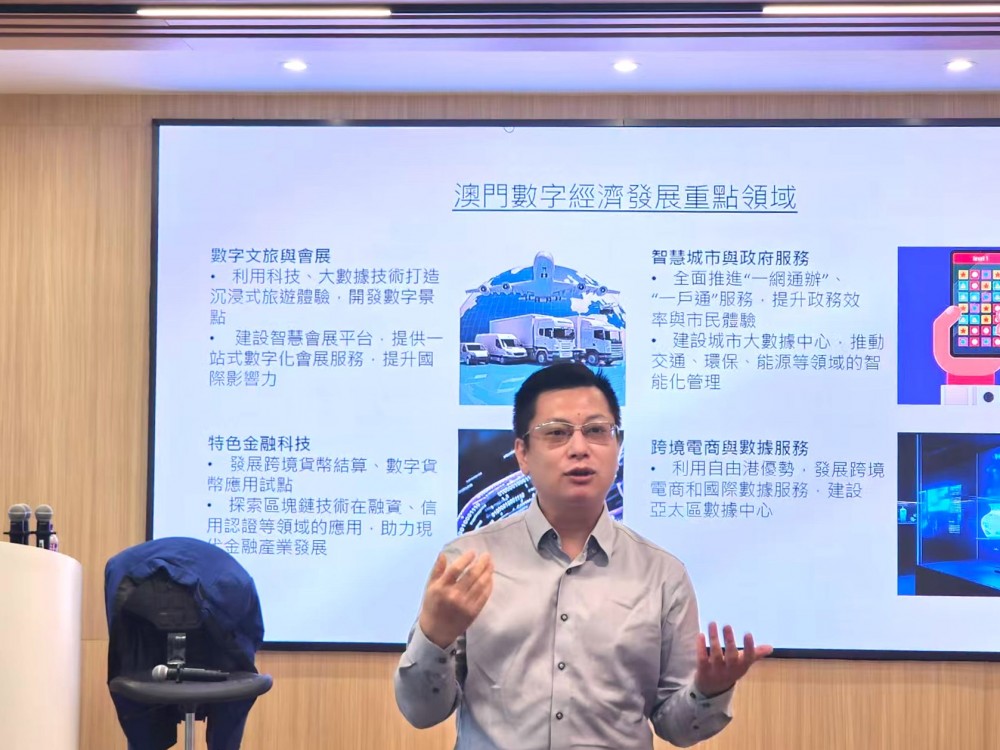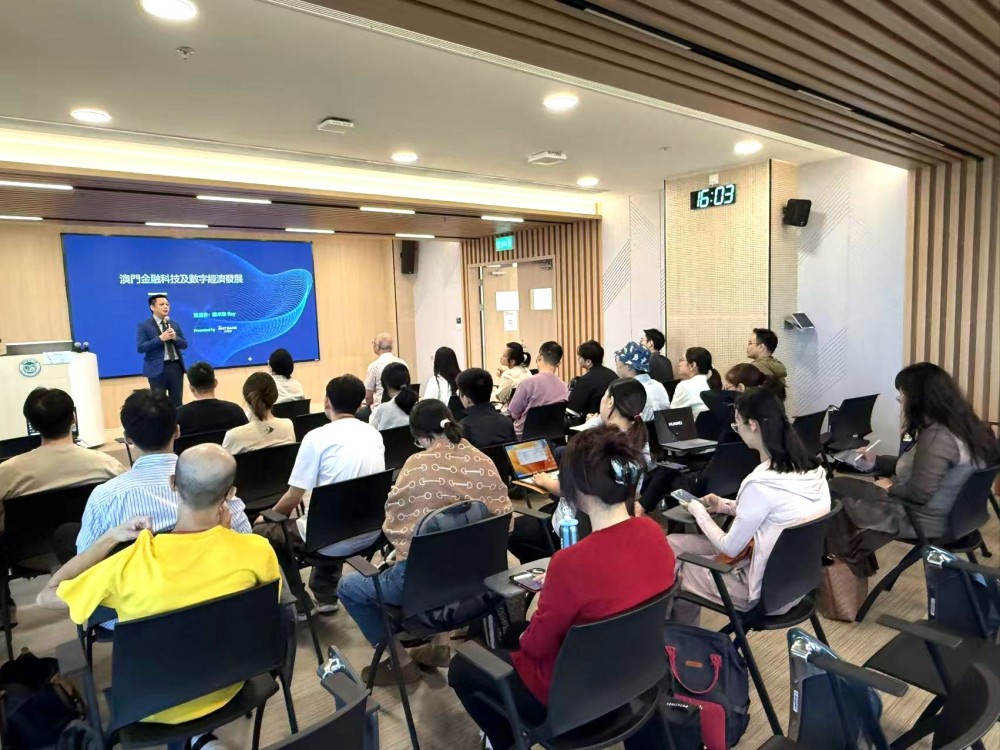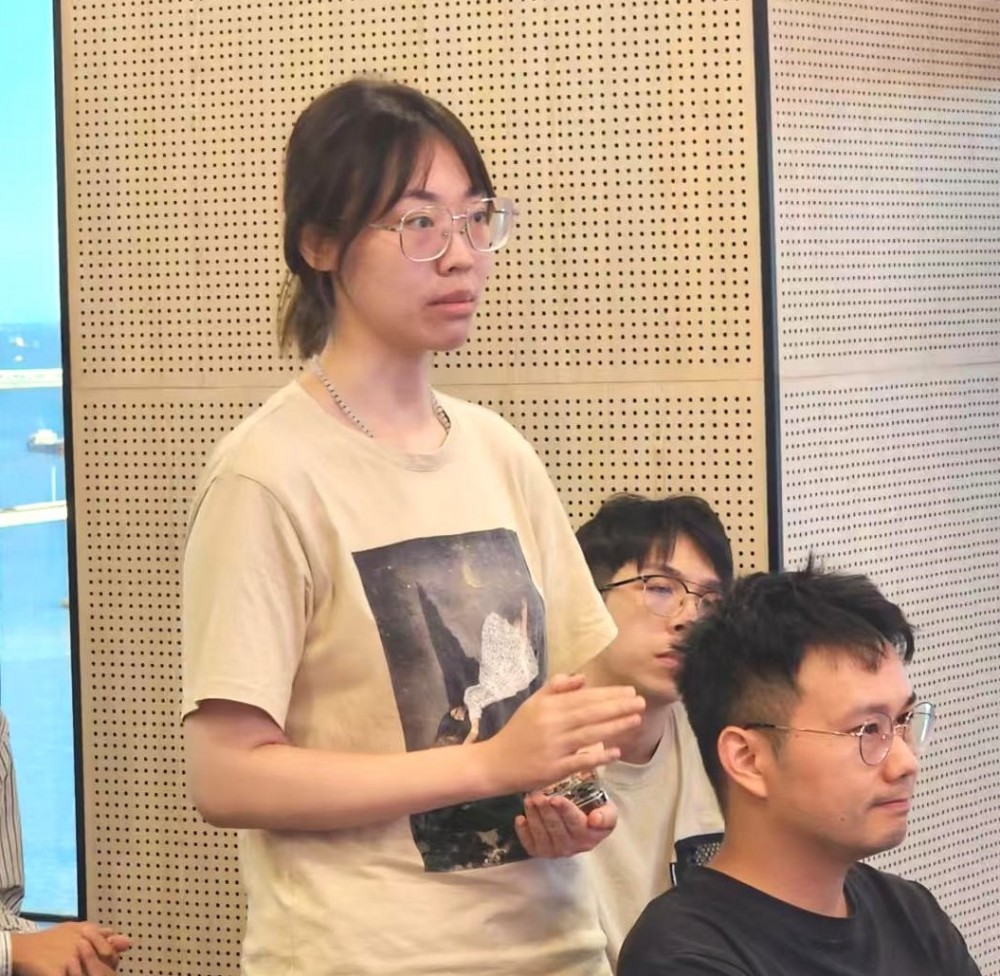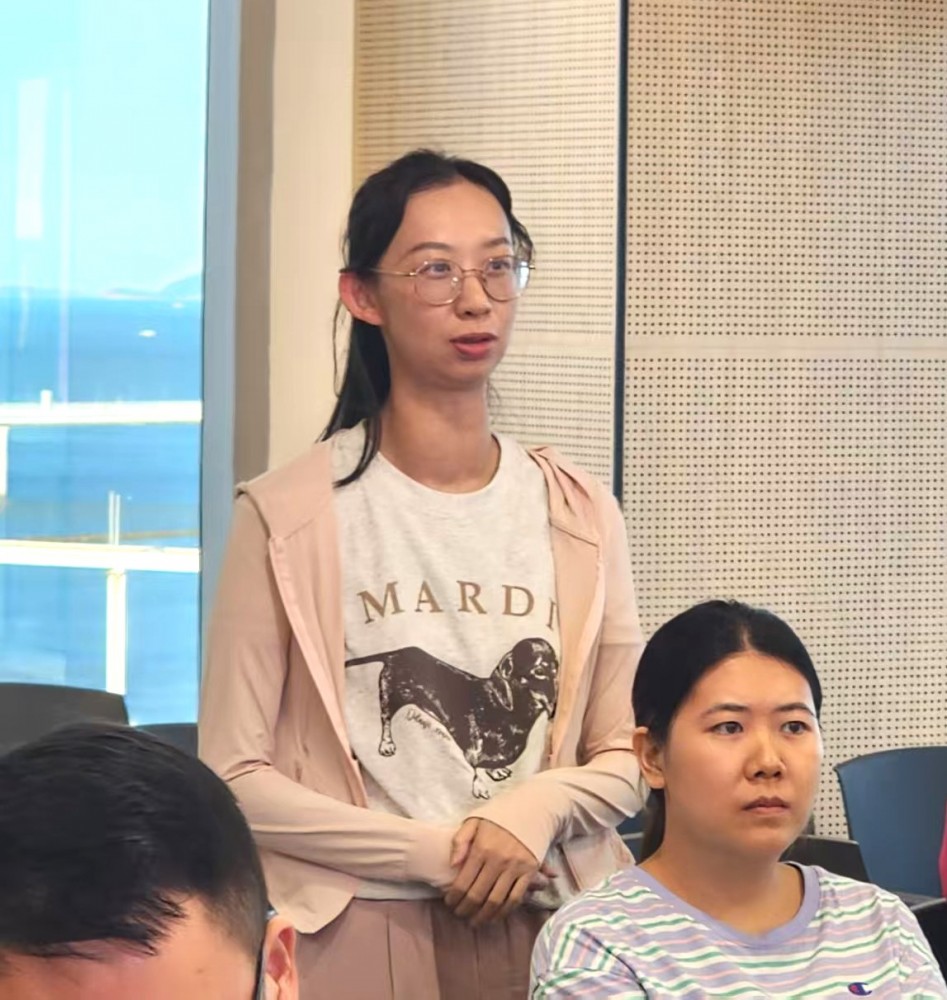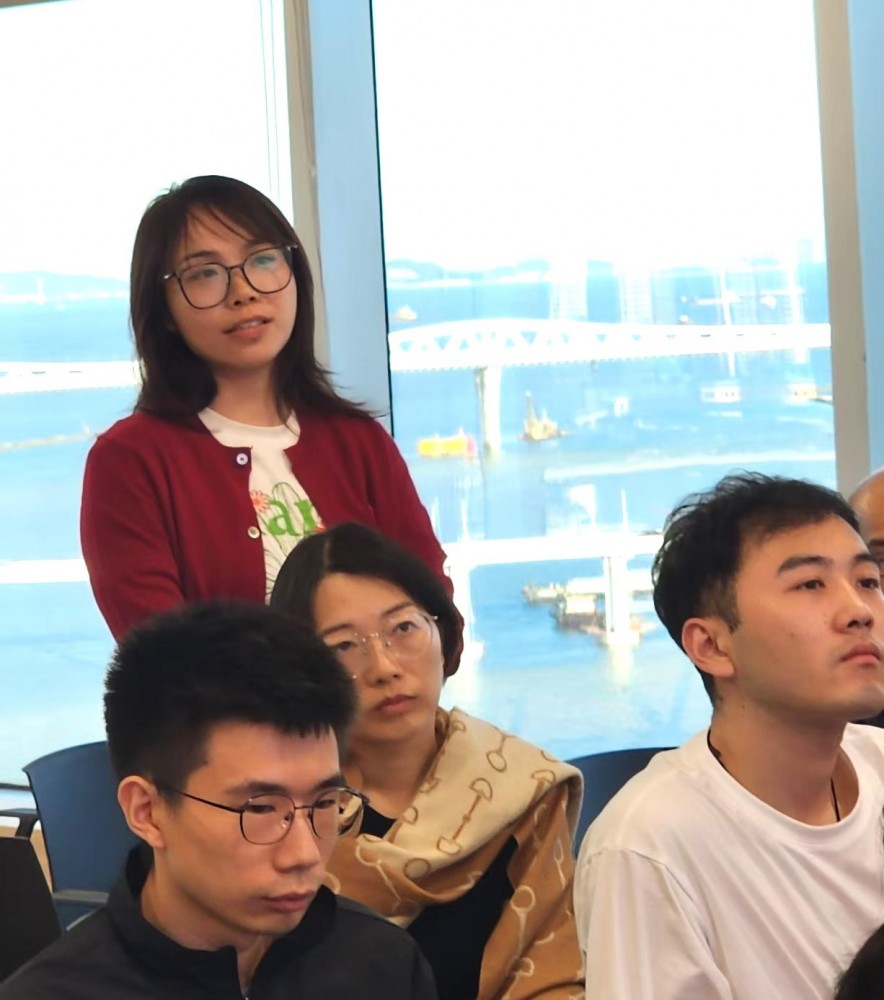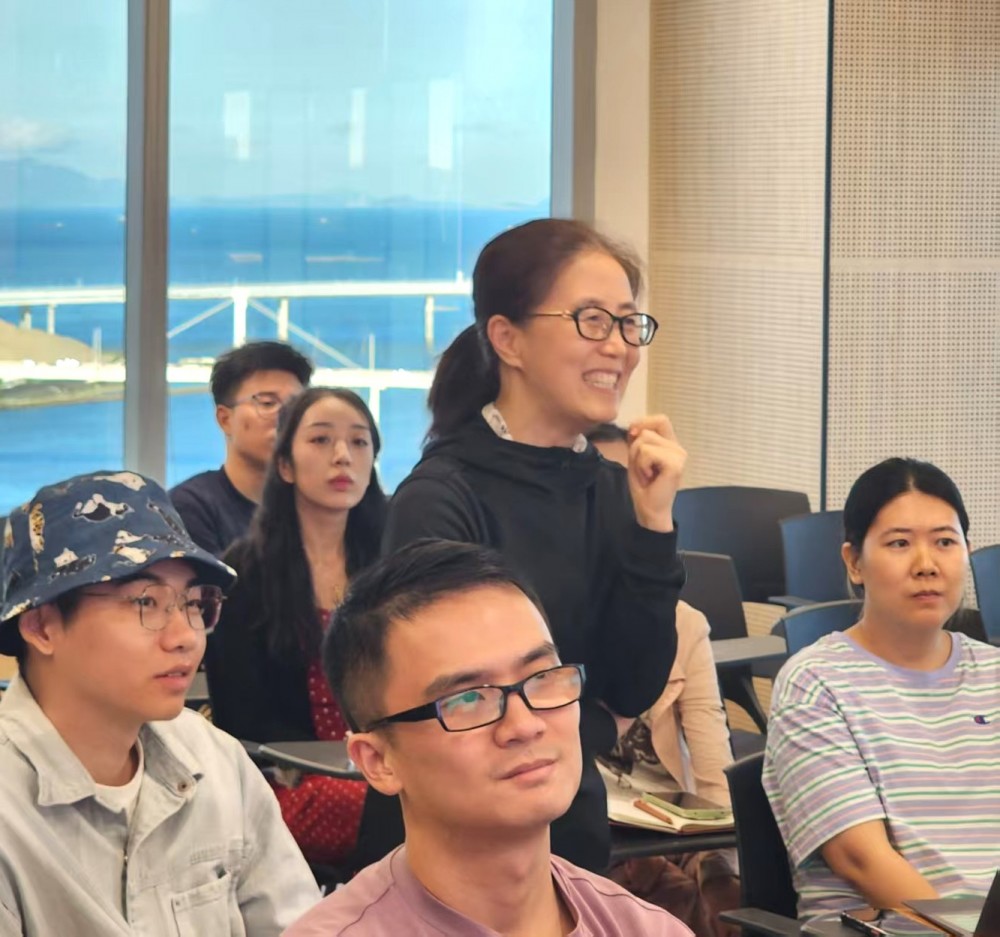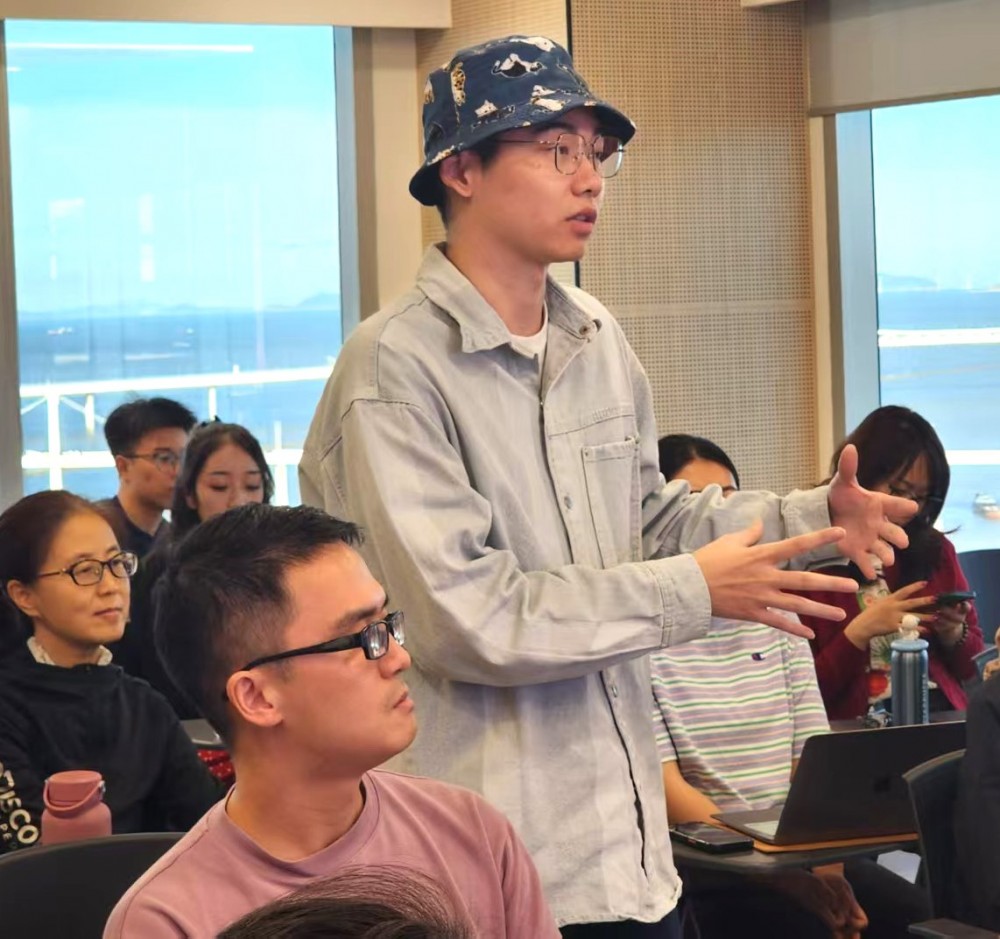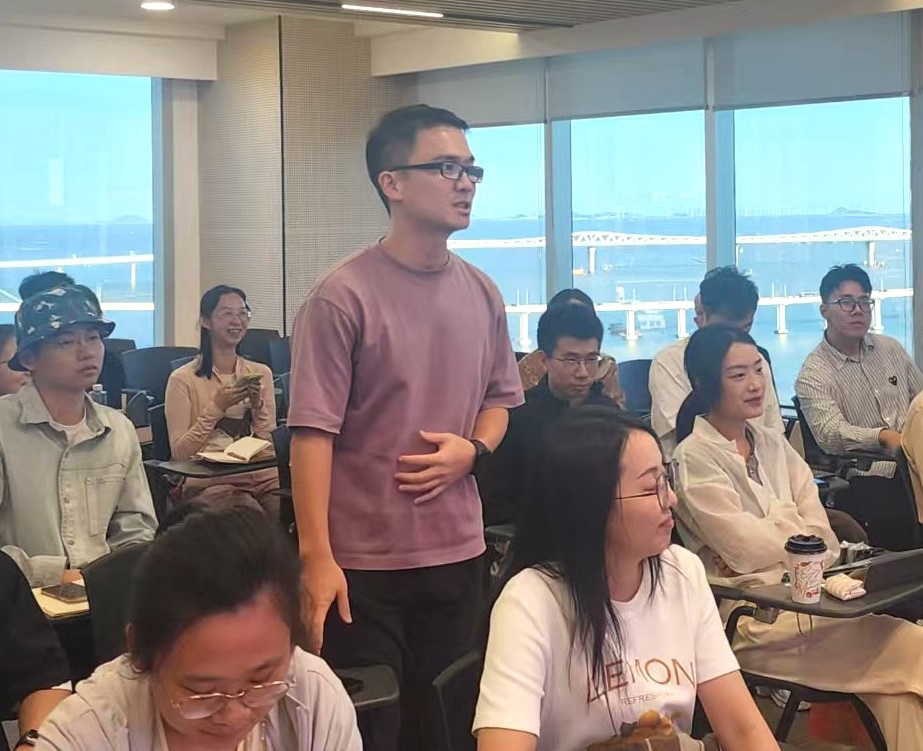On September 4, 2025, the Faculty of Finance at City University of Macau hosted a seminar as part of its ongoing Finance Seminar Series at Golden Dragon Campus, Macau. Mr. Chan Cheuk Wa, Director of Securities Business in the Business Development Department, was invited as the keynote speaker. The seminar focused on the theme: “Prospects of Macao's Fintech and Digital Economy.” Distinguished guests included Dean Adrian Cheung and Associate Dean Eva Khong of the Faculty of Finance.
During the seminar, Director Chan used vivid anecdotes from financial history to illustrate how core principles—such as consensus, credit, and efficient resource allocation—have persisted from ancient times to the present. He argued that while the tools of finance have evolved, its fundamental elements remain unchanged. Digital banking, he noted, is designed to address these enduring challenges.
Director Chan elaborated on global trends in digital banking, driven by emerging technologies such as artificial intelligence, machine learning, the Internet of Things, biometrics, virtual and augmented reality (VR/AR), and blockchain. He explained how fintech solutions are designed to resolve the pain points of traditional finance, such as lengthy processing times and cumbersome documentation. Digital banks, he added, can streamline operations through one-stop modeling, big data analytics, and advanced risk control systems—lowering credit barriers and expanding access to inclusive financial services.
He identified key areas for Macao’s digital economy development, including:
- Digital cultural tourism and exhibitions
- Smart cities and government services
- Distinctive fintech applications
- Cross-border e-commerce and data services
Director Chan emphasized the importance of leveraging technology and big data to create immersive tourism experiences and develop digital attractions. He advocated for the establishment of a city-wide big data center to enhance intelligent management in areas such as transportation, environmental protection, and energy. He also discussed the potential of blockchain in financing and credit authentication to support the growth of Macao’s modern financial industry. Furthermore, he highlighted Macao’s status as a free port, which offers strategic advantages for developing cross-border e-commerce and international data services, including the creation of an Asia-Pacific data center.
To support these initiatives, Director Chan stressed the need for a robust guarantee and support system, including talent recruitment and training, regulatory improvements, and resource allocation. He referenced recent policy developments, such as the launch of a rapid payment system and a cross-border pilot program for the digital RMB in Macao. According to the 2024 Policy Address, the Macao SAR Government is accelerating the development of modern finance, digital currency applications, and the fintech industry. The Monetary Authority of Macao (AMCM) has also reiterated its commitment to advancing digital currency pilot programs.
Director Chan further explored the integration of digital finance with Web 3.0 technologies. He cited the use of cryptocurrency payments as an example, which enables users to access a suite of Web 3.0 banking services—including deposits, withdrawals, and encrypted consumer transactions—enhancing the overall user experience.
The seminar also showcased the innovative practices of Ant Bank (Macau), which has leveraged fintech to disrupt traditional banking models. By addressing market pain points and launching distinctive digital services, Ant Bank (Macau) aims to deliver financial solutions that enhance account management, investment access, SME support, and digital financing.
The seminar was met with enthusiastic participation from students, who actively engaged in the Q&A session. Faculty members and students expressed their sincere appreciation to Director Chan for his insightful presentation. Students shared that the seminar deepened their understanding of the development potential of fintech and the digital economy—both globally and within Macao—and highlighted the challenges these innovations pose to traditional finance. They also expressed keen anticipation for future seminars in the series.



